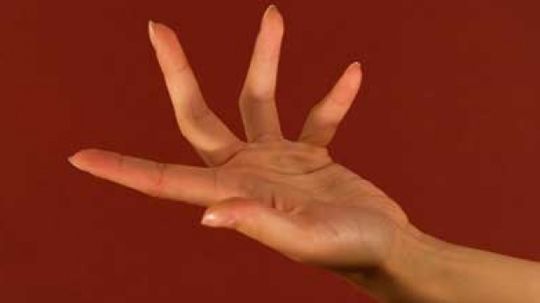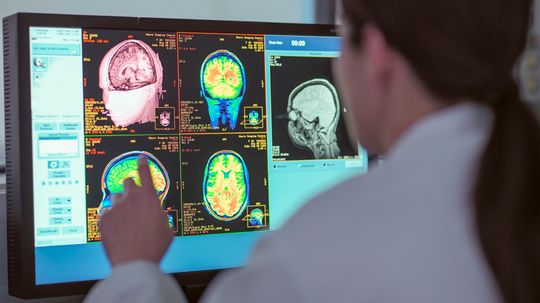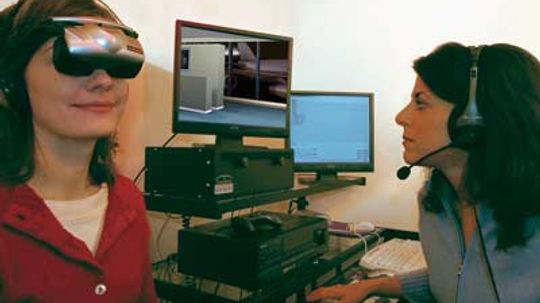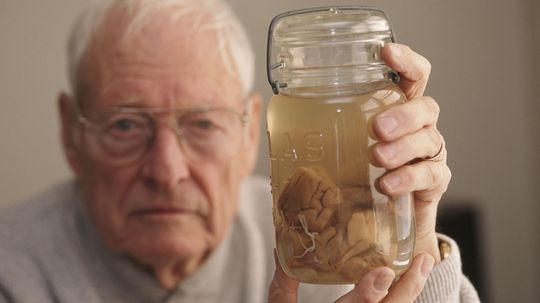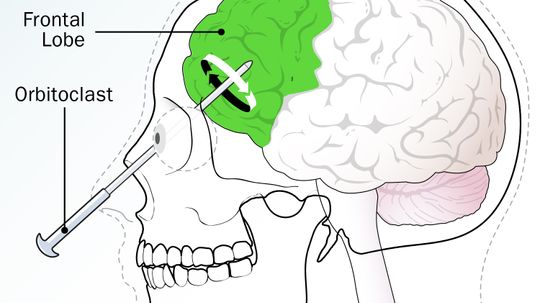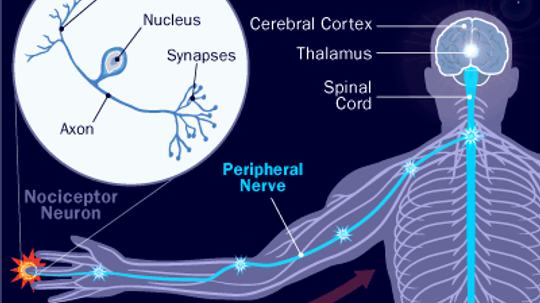The Human Brain
What are dreams really made of? Are humans the smartest animal? What causes schizophrenia? Travel inside the mind and find out how the human brain works.
Learn More / Page 3
People with face blindness" can see facial features just fine; if they were looking at a face they could describe to you what it looks like. But they cannot retain a memory of it. In severe cases people don't even recognize their own face when they look in the mirror. Learn what face blindness is all about.
By Julia Layton
Medical examiners are attributing an increasing number of deaths while in police custody to a syndrome called excited delirium. The problem is, there's no proof this syndrome exists.
By Julia Layton
Human beings have always found ways to ward off the effects of sleep deprivation. The newest wake-up pill has all of the benefits of caffeine and amphetamines with none of the down sides.
By Julia Layton
Advertisement
Scientific studies are showing that lefties are quicker and more adroit in some activities than their right-handed counterparts. How true is this idea?
By Julia Layton
The trials of being a lefty are numerous. You jostle for elbow room at the table, use scissors that feel funny in the hand and are teased for writing oddly. But do beleaguered lefties get the last laugh in sports?
By Robert Lamb
It's commonly believed that that grandpa has more knowledge than his young whippersnapper of a grandkid. But do wrinkles on the face really relate to wrinkles on the brain?
Think about how you would describe yourself to a stranger. Would you emphasize your keen sense of humor or physical features you're fond of? Or would you spend more time on supposed "trouble spots"? Your answer largely depends on your mental picture.
Advertisement
TV shows, movies and books depict characters that have suffered a bad injury to the head and have lost their memory. But could it really happen that fast? And will their memory ever return?
It doesn't exactly seem like something the human body would do, let a large portion of itself go to complete waste. Is it true that most of your brain is on permanent hiatus?
Three weeks of hard work. Is that all it takes to kick your smoking habit, taste for junk food or serial inability to stop hitting the snooze button? Sounds almost too good to be true, doesn't it?
By Julia Layton
A man in Cornwall, England, went 11 consecutive days without a wink of sleep. Find out how he did it, why he did it and why you shouldn't give it a try.
Advertisement
Nothing beats watching a blockbuster on the big screen, but today's home theater systems do an impressive job bringing that experience into your home. In this article, we'll explain how the components of a home theater system re-create the sounds and
So you're at a family dinner, and your uncle stands up and dramatically announces that he has a brain tumor. How does he know? Because he researched his frequent headaches on the Internet.
E=mc2. The theory of relativity. An understanding of the speed of light. These ideas all came from the brain of one man: Albert Einstein. But what happened to his brain after he died?
It's safe to say that no one particularly wants an ice pick through the eye socket. And yet, for years, people who were mentally ill or merely "difficult" had parts of their brains removed this way. The natural question: Why?
Advertisement
Religion is one of the three things you're never supposed to talk about if you don't want your dinner party to turn into a food fight. But what about looking at religion through the lens of science instead of faith? Is there a connection between our gray matters and pray matters?
We've all heard of a "sixth sense" and extra-sensory perception. So how many ways can we actually sense the world around us?
Every animal sleeps -- some more than others -- but why they do it is a mystery to scientists. Is sleep more than just beauty rest? Could skimping on it kill you? And how much do you really need?
Addictions to substances such as drugs and alcohol have ruined the lives of people all over the world. Read about current views and ideas on addiction.
By Josh Clark & Sascha Bos
Advertisement
Antidepressants are the first line of treatment for depression. Sales of antidepressants total $50 billion annually, making this class of drugs one of the leading prescription medications. But are they effective?
Alien hand syndrome sounds like something from a B-grade horror movie, but it's a real condition. You could be completely at the mercy of your own renegade hand -- it could keep your other hand from functioning, punch you or even choke you.
You might think that not being able to feel pain would be a blessing. No tears, no painkillers, no lingering aches. But really, not being able to feel pain is dangerous.
You've just touched a hot stove -- and probably felt an immediate sharp pain, then a dull ache. How do we sense pain, and why does it eventually go away?
Advertisement
That man dressed in animal skins and running around Jerusalem trying to baptize people isn't alone. Tourists in Jerusalem sometimes suffer from a strange conviction that they are Biblical figures. Are they mentally ill or is there more to it?
Sleepwalking is an intriguing phenomenon. How can a person be unconscious but still coordinate his or her limbs? And how do we know when we're really awake?




